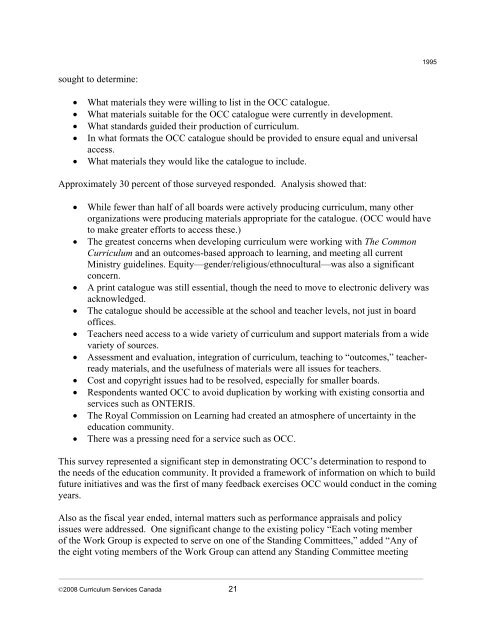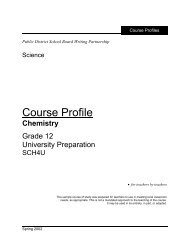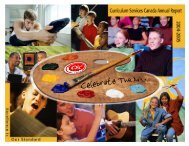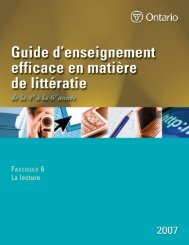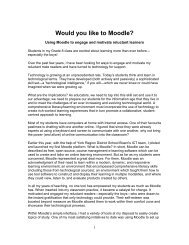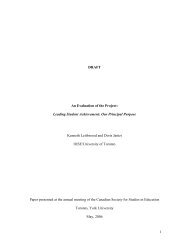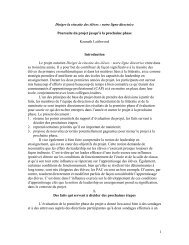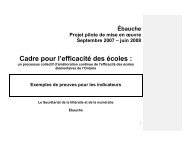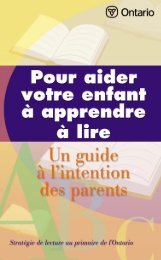a history of curriculum services canada
a history of curriculum services canada
a history of curriculum services canada
You also want an ePaper? Increase the reach of your titles
YUMPU automatically turns print PDFs into web optimized ePapers that Google loves.
1995<br />
sought to determine:<br />
• What materials they were willing to list in the OCC catalogue.<br />
• What materials suitable for the OCC catalogue were currently in development.<br />
• What standards guided their production <strong>of</strong> <strong>curriculum</strong>.<br />
• In what formats the OCC catalogue should be provided to ensure equal and universal<br />
access.<br />
• What materials they would like the catalogue to include.<br />
Approximately 30 percent <strong>of</strong> those surveyed responded. Analysis showed that:<br />
• While fewer than half <strong>of</strong> all boards were actively producing <strong>curriculum</strong>, many other<br />
organizations were producing materials appropriate for the catalogue. (OCC would have<br />
to make greater efforts to access these.)<br />
• The greatest concerns when developing <strong>curriculum</strong> were working with The Common<br />
Curriculum and an outcomes-based approach to learning, and meeting all current<br />
Ministry guidelines. Equity—gender/religious/ethnocultural—was also a significant<br />
concern.<br />
• A print catalogue was still essential, though the need to move to electronic delivery was<br />
acknowledged.<br />
• The catalogue should be accessible at the school and teacher levels, not just in board<br />
<strong>of</strong>fices.<br />
• Teachers need access to a wide variety <strong>of</strong> <strong>curriculum</strong> and support materials from a wide<br />
variety <strong>of</strong> sources.<br />
• Assessment and evaluation, integration <strong>of</strong> <strong>curriculum</strong>, teaching to “outcomes,” teacherready<br />
materials, and the usefulness <strong>of</strong> materials were all issues for teachers.<br />
• Cost and copyright issues had to be resolved, especially for smaller boards.<br />
• Respondents wanted OCC to avoid duplication by working with existing consortia and<br />
<strong>services</strong> such as ONTERIS.<br />
• The Royal Commission on Learning had created an atmosphere <strong>of</strong> uncertainty in the<br />
education community.<br />
• There was a pressing need for a service such as OCC.<br />
This survey represented a significant step in demonstrating OCC’s determination to respond to<br />
the needs <strong>of</strong> the education community. It provided a framework <strong>of</strong> information on which to build<br />
future initiatives and was the first <strong>of</strong> many feedback exercises OCC would conduct in the coming<br />
years.<br />
Also as the fiscal year ended, internal matters such as performance appraisals and policy<br />
issues were addressed. One significant change to the existing policy “Each voting member<br />
<strong>of</strong> the Work Group is expected to serve on one <strong>of</strong> the Standing Committees,” added “Any <strong>of</strong><br />
the eight voting members <strong>of</strong> the Work Group can attend any Standing Committee meeting<br />
©2008 Curriculum Services Canada 21


